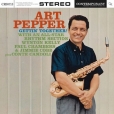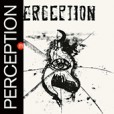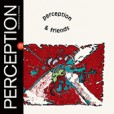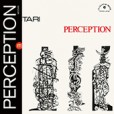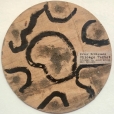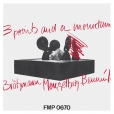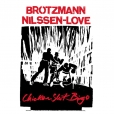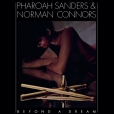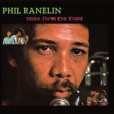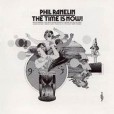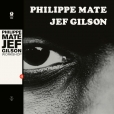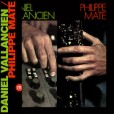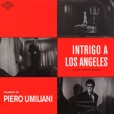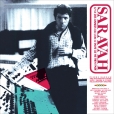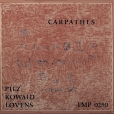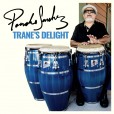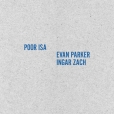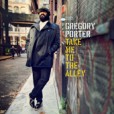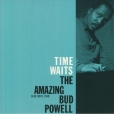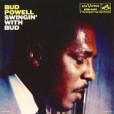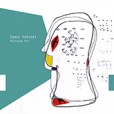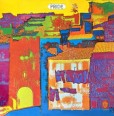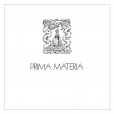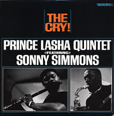Your basket is empty

The first of a fascinating trio of LPs — this for Futura in 1970, by Hungarian saxophonist Yochk’O Seffer, German pianist Siegfried Kessler, French bassist Didier Levallet and Vietnamese drummer Jean-My Truong.
‘Lyrically incandescent free jazz, made up of startling interactions between complex harmonies and disjointed rhythms.’
‘The second LP, from 1971, augmenting the original quartet with numerous guests including Teddy Lasry, Jean-Charles Capon, Kent Carter and Jean-François Jenny-Clark. Siegfried Kessler is largely absent on this recording, temporarily replaced by Manuel Villaroel, a pianist from Chile with a completely different temperament.
‘It all seems to predict the after-life of Perception would subsequently take. One track, by Yochk’O Seffer, who had already been part of Magma two years previously, looks forward to the more structured Neffesh Music, whilst, in the opposite direction, another track, by Didier Levallet, is more evocative of the future arrangements on Swing Strings System. All these different elements, from tightly written pieces to wild improvisation, work so well together: their coherence is one the key attributes of a group free like few others.’
‘By the time Mestari, their third and final album, came out, Perception had four years of questing and originality behind them, developing their own individual language, in which the improvisatory spontaneity did not exclude influences from European folk or classical traditions.
‘Balanced, ethereal and structured, Mestari reinstated the original quartet. It opens infinite perspectives, totally in phase with what was being produced in France at the same time by the Cohelmec Ensemble and the Dharma Quintet.’
‘Brotzmann barely plays saxophone at all, sticking mostly to tarogato and a host of clarinets; Nilssen-Love mostly plays gongs, bells and other metal percussion. With the changes in tools comes a change in approach. Nilssen-Love is sparer and more decorative, providing accentuating commentary that highlights the more solemn and yearning aspects of his partner’s playing, and Brotzmann explores melancholy to devastating effect. This is a career peak for the recently departed reedist’ (Bill Meyer, The Wire).
‘Phil Ranelin was a session trombonist for the likes of Steve Wonder before setting up the Tribe label with Wendell Harrison in Detroit… The title track is lusciously, greasily funky and stands in pretty stark contrast to the kind of airbrushed fusion that was in vogue at the time. Sounds From The Village is even better (and dirtier), showcasing Ranelin’s oily trombone gymnastics and a viciously fuzzed guitar solo… The obligatory Coltrane tribute He The One We All Knew is the kind of groove-based free-playing typical of Pharoah Sanders, though only really picks up when the band launch into post bop swing mode in the last six minutes or so… Beautiful stuff… Essential.’
Saxophonist Phillipe Maté has played with the Acting Trio, Jef Gilson and Butch Morris, amongst others; and that’s him on Jean-Claude Vannier’s brilliant L’Enfant Assassin Des Mouches. As the recording engineer of BYG, Daniel Vallancien worked alongside Anthony Braxton, Don Cherry and Sonny Sharrock; for Saravah he recorded Brigitte Fontaine and the Cohelmec Ensemble. From 1972, this free-form saxophone/electronics collaboration is another bonafide classic of the French musical underground, revived with characteristic panache by Souffle Continu.
This soundtrack to Romano Ferrara’s 1964 spy movie is one of PU’s best and most celebrated. Featuring Nini Rosso, Chet Baker, Bill Gilmore, Marcello Boschi and many others. Excellent sound, from the original analogue masters, with lots of bonus material; in a beautiful sleeve, with a reproduction of the original movie poster on the inside gatefold.
Kit Downes is on organ. Hayden Chisholm contributes alto saxophone, shruti box, analogue synthesizer, and throat singing. The vocals are by PJEV, a female a cappella vocal quintet from Zagreb devoted to the traditional singing of Serbia, Croatia, Bosnia and Herzegovina.
‘This is a remarkable, stirring piece of work that works right into your bones’ (Dusted).
‘Your mind will be truly blown’ (Songlines).
Poor Isa — Ruben Machtelinckx and Frederik Leroux — playing woodblocks and prepared banjos; joined by Evan Parker, and Norwegian percussionist Ingar Zach.
Wonderful, moody, questing music, beautifully presented, in thick grey cardboard sleeves with foil stamping. Individually hand-numbered, in a first edition of just 150.
These are the last copies.
Strongly recommended.
The legendary AMM drummer recorded roundabout his home village of Matching Tye, Essex, in amongst the acoustics and significance of the village green and All Saints church in High Laver (where John Locke is buried).
‘At times it sounds like he’s sharpening blades on a grinding wheel, as keening tones slowly scythe through the air. Elsewhere, he appears to be dragging the side of a cymbal against a bass drum skin, producing low groans that complement the glistening high end… In Air, Oak, Metal, Hair, Prevost’s cymbals whistle and shimmer as they catch the breeze.
‘Other tracks nod towards Prevost’s jazz background. MaxPlus draws inspiration from a Max Roach hi-hat study… Rotology touches on a range of drumming traditions, from East Asia to West Africa’ (The Wire).
Congo Call, such a killer. With Sonny Simmons.
